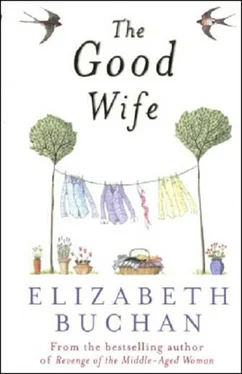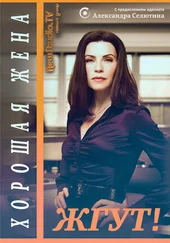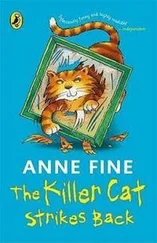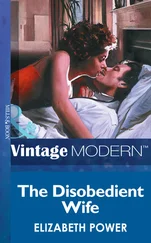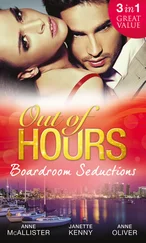Elizabeth Buchan - The Good Wife aka The Good Wife Strikes Back
Здесь есть возможность читать онлайн «Elizabeth Buchan - The Good Wife aka The Good Wife Strikes Back» весь текст электронной книги совершенно бесплатно (целиком полную версию без сокращений). В некоторых случаях можно слушать аудио, скачать через торрент в формате fb2 и присутствует краткое содержание. Жанр: Современные любовные романы, на английском языке. Описание произведения, (предисловие) а так же отзывы посетителей доступны на портале библиотеки ЛибКат.
- Название:The Good Wife aka The Good Wife Strikes Back
- Автор:
- Жанр:
- Год:неизвестен
- ISBN:нет данных
- Рейтинг книги:5 / 5. Голосов: 1
-
Избранное:Добавить в избранное
- Отзывы:
-
Ваша оценка:
- 100
- 1
- 2
- 3
- 4
- 5
The Good Wife aka The Good Wife Strikes Back: краткое содержание, описание и аннотация
Предлагаем к чтению аннотацию, описание, краткое содержание или предисловие (зависит от того, что написал сам автор книги «The Good Wife aka The Good Wife Strikes Back»). Если вы не нашли необходимую информацию о книге — напишите в комментариях, мы постараемся отыскать её.
The Good Wife aka The Good Wife Strikes Back — читать онлайн бесплатно полную книгу (весь текст) целиком
Ниже представлен текст книги, разбитый по страницам. Система сохранения места последней прочитанной страницы, позволяет с удобством читать онлайн бесплатно книгу «The Good Wife aka The Good Wife Strikes Back», без необходимости каждый раз заново искать на чём Вы остановились. Поставьте закладку, и сможете в любой момент перейти на страницу, на которой закончили чтение.
Интервал:
Закладка:
My father was an Italian refugee, brought to England from the village of Fiertino, north of Rome, by his widowed mother who fled the war and settled in the Midlands. The Villeneuves were wine aristocrats who lived in an historic château. They made contact during the fifties and a close friendship developed despite their differences. That was the way with wine people.
After I had Chloë, and found it difficult to juggle all my commitments, Raoul took my place at my father’s side for a while before returning to his family business. We still kept in touch. We still talked on the phone… oh, about many things.
We discussed why the French drank their vintages young and hopeful. We discussed oak casks, sandy soil, the amount of sun for that year, the use of technology in Australian and American wine-making. The results? ‘Simplistic,’ concluded Raoul, the Frenchman. But perhaps that was not a bad thing. Clean, stable, sediment-free wine suited our age better than the muddy, sometimes fractious, yields of the Old World.
We agreed that the finest wine defied categorization. Any reasonably intelligent observer, we said, could point to the best soil, position and climate, the necessity of keeping vigil until the grape trembled at the peak of ripeness and say, yes, that was the formula. But good wine, great and successful wine, like a marriage, was a glorious fusion of nature, substance and will. It was a product of patience, understanding and knowledge, of great passion and love, which could never be quite regulated or predicted. One sniff, one drop balanced on the tongue, is all it takes to exult the mind and flood the senses with the delirium of discovery.
My father poured two glasses of the Pomerol (the creation of an inspired Belgian vintner and the merlot grape) and waited for me to ready my palate.
Rich ruby. Dark garnet. Depth and sweetness. I saw through the glass darkly, held its ravishments on my tongue.
‘Describe,’ ordered my father.
‘Fleshy… concentrated. It has a rich inner life.’
My father was amused. ‘I hope you do, too, Francesca.’
When I first began to work for him, travelling and learning, talking to clients, wine represented a mysterious combination of provenance, production and perception; I yearned to unlock its secrets and become proficient in its lore. But then I fell in love with it, and learned that wine was life, and for life. It was sun and warmth – it could be bitter, unfair, disappointing, but the possibilities of greatness always remained.
‘You must come back to work properly,’ said my father, ‘now that Chloë is leaving home. I need the help and you must be ready to take on the business.’ He looked at me lovingly across the table. ‘After all, it is in your blood.’
I felt the answering beat of excitement. I could best describe it as the quiver that accompanied the wakening from long sleep. My father was right. Wine was in my blood.
When I was three, my mother, Sally, absconded with Art, an estate agent from Montana, where she still lived and where I had visited her every other summer until I married Will. Unless it was absolutely necessary, my father never mentioned her. ‘She went,’ he said, ‘and that is that.’
Like it or not, and for years I picked over the imperfectly healed scars, my mother took with her far more than the clothes she had stuffed into two suitcases: my belief that things were strong and permanent, I suppose. She left my father (and me) warier, more fragile.
In place of a mother, my father summoned Benedetta from Fiertino (home to generations of Battistas) to help him look after me, and she lived with us until Caro took up residence in Ember House. Benedetta, a third cousin by marriage in a complicated Battista family tree, dark-haired, and not as slender as she would have liked, held my father in check, which few could. It was Benedetta who decreed on my tenth birthday that there should be no more bathtimes with my father. That puzzled me. Perhaps ten was a magic number. Perhaps it was secret, like my mother was a secret. But if I had questions, I had not yet learnt how to ask them. On my tenth birthday then, washed and brushed within an inch of my life, tied into a thick, old-fashioned dressing-gown with a cord belt, I was escorted downstairs by Benedetta to the door of my father’s study.
He was at his desk, surrounded by wine books, writing up the day’s business. Conscious that ‘ten’ hung over me, I went to stand beside him. When he patted his knee, I shook my head.
‘I was forgetting,’ he said sadly. ‘You’re a big girl now and we must talk about grown-up things.’
I was more interested by the framed photograph on my father’s desk. It was of a man and a woman carved in stone, lying together on an ornate couch draped in material. He had a square face and a beard; she had curls falling down her back and dangling earrings. His arm was round her, and she leant back against him.
I swivelled to look at my father. Greatly daring, I asked, ‘Is that Mummy?’
There was a short, tense silence. No, it was not, he answered, and, if my question hurt him, he did not betray it by so much as a flicker. No, the picture was of an Etruscan funerary couch. Fifth century BC.
‘Was that when I was eight?’ I asked, for time had no meaning.
My father laughed. ‘The Etruscans were a people who, long, long ago, lived in the Fiertino area where the Battistas come from. They made such a lot of things that people are always digging up bits and pieces and putting them in museums. I like this one particularly because he and she will never be… parted.’
Bedtimes were usually reserved for my father’s inexhaustible supply of Fiertino stories which, it must be said, were a little different each time he told them. I enjoyed pouncing on the discrepancies. ‘But, Dad, you said the oxen were grey, not white.’ At which point he would tap my hand and say, ‘Don’t be too clever, my darling,’ and continue.
‘Fiertino is only a little town, but a town all the same. It is in a valley north of Rome which was originally lived in by the Etruscans, an ancient people who loved the good things in life. Chestnut trees grow on one slope; on the other, wheat, olives and vines. It has a square with a large church at one end, and a beautiful colonnaded walk around it, which gives very necessary shade from the sun. Our family, the Battistas, lived in the fattoria , the farm, just outside the town, and your grandfather was the fattore . He supervised the granaries and cellars, the oil presses and the dairy. We had our own vineyard and grew the Sangiovese grape.’
Like the horn of plenty, the stories never appeared to be finished and Fiertino became synonymous for me with drowsiness and sleep. I heard about hot sun and the harvesting of olives, of the huge family house, the fattoria , which echoed to the shrieks and exchanges of a large, extended, uninhibited family. I knew that the town had suffered badly in the war. I heard the story of the three-legged goat, the miraculous olive tree, the runaway Battista bride, and of the young wife who was murdered by her much older husband for taking a lover.
‘You see, there is the code,’ my father said. He spoke in the present tense.
He was clever, my father. He knew how to plant a footprint in a child’s mind. Images crept into mine and put down long, tough, fibrous roots – just like the vine.
‘It’s time I went back to Fiertino,’ said my father. ‘We have left it too long.’
Curiously, we had not been there together. In fact, my father had returned only once, as a young man. We travelled everywhere else in the world and we did business in the north of Italy but my father had never cared to go south to Fiertino. Partly, I suspect, this was because of Benedetta, who had wanted to marry him. But that was another story.
Читать дальшеИнтервал:
Закладка:
Похожие книги на «The Good Wife aka The Good Wife Strikes Back»
Представляем Вашему вниманию похожие книги на «The Good Wife aka The Good Wife Strikes Back» списком для выбора. Мы отобрали схожую по названию и смыслу литературу в надежде предоставить читателям больше вариантов отыскать новые, интересные, ещё непрочитанные произведения.
Обсуждение, отзывы о книге «The Good Wife aka The Good Wife Strikes Back» и просто собственные мнения читателей. Оставьте ваши комментарии, напишите, что Вы думаете о произведении, его смысле или главных героях. Укажите что конкретно понравилось, а что нет, и почему Вы так считаете.
